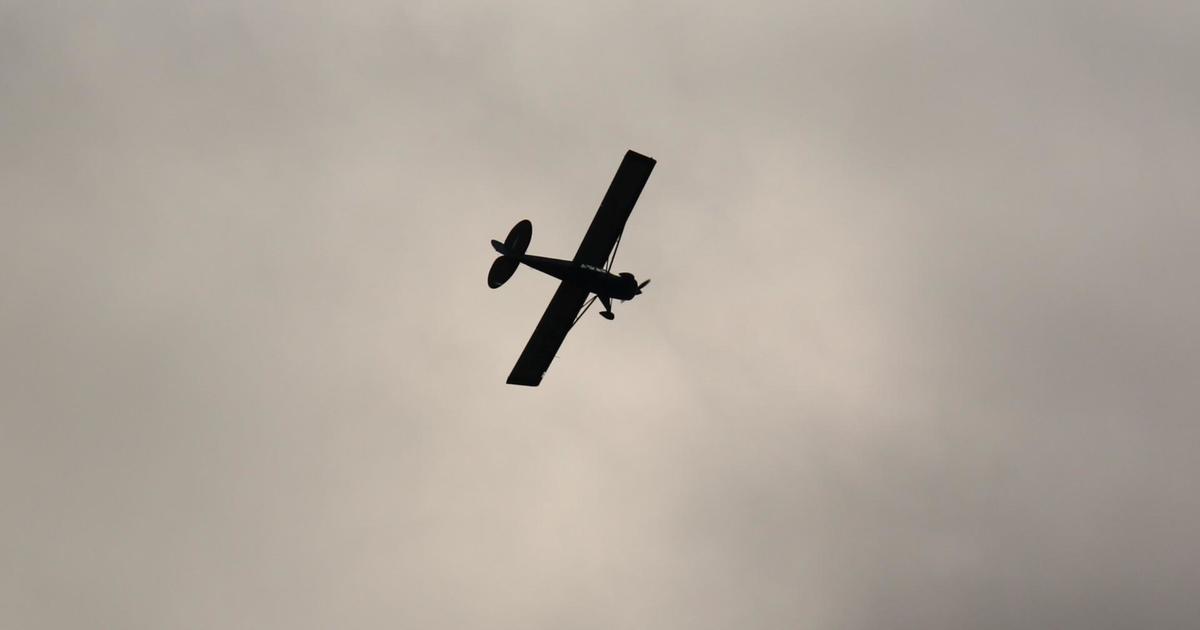Ramsey County Pilot Project Puts Stalkers On GPS
ST. PAUL, Minn. (AP) -- If Grace had seen her ex-boyfriend's crazed eyes, she would not have let him in when he rang her doorbell at 4 a.m. Instead, she opened the door, and for the next two hours he beat her so hard she saw flashing lights — while her child cried in another room.
"He said he was going to chop me up and I would rest in pieces, not peace," Grace said. For the next several months, Grace's abuser continued to violate a court order telling him to stay away, while she lived in fear — never knowing where he was or when he might show up.
Grace, a pseudonym she used to protect herself and her child, shared her story Thursday as Ramsey County authorities launched a pilot program that will use GPS technology to monitor when domestic violence offenders get too close to their alleged victims. The goals are to make sure offenders comply with no contact orders, and to keep victims like Grace safe.
"These are very volatile situations," Ramsey County Attorney John Choi said. "Too often, we read about domestic abuse situations becoming homicides. ... I think this technology is going to be able to help prevent those homicide situations."
Under the program, defendants and victims who volunteer to participate will each have a GPS device. The defendant will wear an ankle bracelet, and the victim will have a "stalker alert" device to carry with her at all times. When a defendant gets too close to his victim and does not leave the area, the monitoring center will notify authorities.
A warning will also sound on both devices. The victim will be told to call 911 and will receive a text or email message, and the defendant will be told to go home, said Mary Pat Maher, executive director of Project Remand, a pretrial services organization that will supervise defendants on the program.
The GPS monitoring isn't an option for everyone. Possible candidates include felony domestic violence offenders, and they'll be screened for eligibility when they first appear in court after an arrest, before they are released from custody.
High-risk offenders with prior records are more likely to receive high bails that will keep them in jail, Choi said. But GPS monitoring could be used for offenders who are deemed to be a medium risk, as Grace's abuser would have been since he had no prior record.
"It's not a foolproof solution, but it's a first step," Choi said. "It adds another layer of security."
Choi said the added safety could also empower victims to feel more confident in testifying against their abusers, which could lead to more convictions.
A study funded with a grant from the U.S. Department of Justice evaluated 18 different programs and found that when GPS monitoring is used during pretrial release, offenders almost never try to contact a victim.
"GPS tracking seems to increase defendants' compliance with program rules compared to those who are monitored but not tracked," according to an abstract of the study, published in June by researches from the University of Illinois and Florida State University.
Ramsey County is the first jurisdiction in Minnesota to run a program on this scale, Choi said. The pilot project will run for one year, then will be formally evaluated, Maher said.
There are two options for funding, Choi said. The preferred option is to have an offender pay for the program, which will cost $10 a day for an average pretrial release period of about three to four months. If a defendant is unable to pay, the county attorney's office will use funds from its criminal forfeiture budget, not to exceed $40,000.
Choi said even if they have to pay for the devices, defendants have an incentive to participate because they could see lower bail amounts and it could also keep them from being falsely accused of violating a no contact order.
The program might have helped Grace, who still lives in fear. In those first few days after her assault and her ex-boyfriend's arrest and subsequent release, she quit her job because he threatened to kill her co-workers. She put her dogs in a shelter and had her cat put to sleep while she was on the run. She stayed at hotels and friends' houses where he couldn't find her.
Still, her ex-boyfriend continued to stalk her. Though he was arrested at one point after she recorded a phone conversation, she said, he made bail, and "continued to haunt me, and always made sure it was hard, if not impossible to prove."
(© Copyright 2012 The Associated Press. All Rights Reserved. This material may not be published, broadcast, rewritten or redistributed.)



